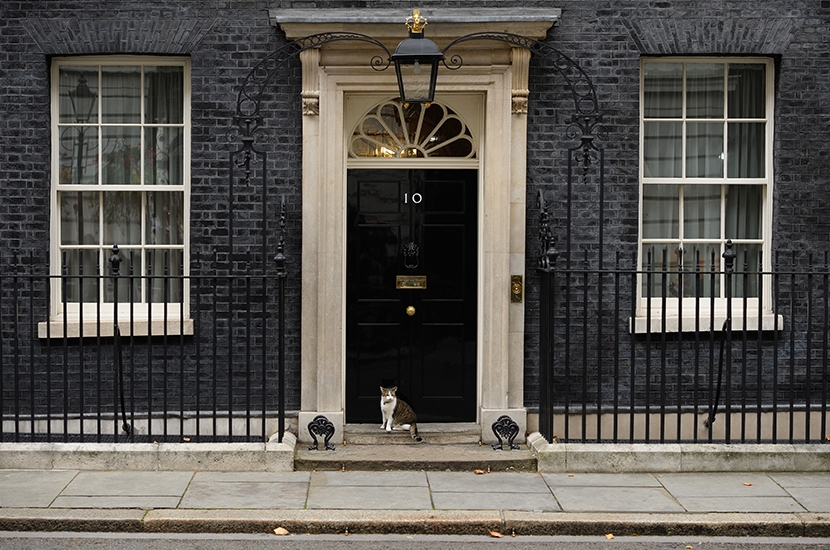Anthony Seldon has narrated this article for you to listen to.
Thursday 3 April 1721 was an unremarkable day in political London. No fanfare or ceremony surrounded King George I’s appointment of Robert Walpole as First Lord of the Treasury (Prime Minister), merely a paragraph buried in the press: ‘We are informed that a Commiffion is preparing appointing Mr Walpole Firft Lord…’ Yet here was the start of what has become the longest-lasting head of government job in the democratic world — and its 300th anniversary falls on 3 April this year.
Expect no fanfare or drone pyrotechnics in political London to mark the occasion. Our leaders will, inevitably, be attending to the pandemic and other pressing concerns. But that does not mean that we should let the moment pass.

Many countries make much of the history of their heads of government and state — including the United States, which has museums and research centres for every president. But not in Britain. Visitors cannot enter No. 10 nor even Downing Street: the merest of glimpses of the building through heavy iron gates, blocking off what used to be a public thoroughfare, is the most they see. This is expected in an autocracy, but in our democracy? Is it surprising that the young are cynical and switched off from politics when the job at its apex feels so remote?
Robert Walpole served 21 years, still the longest tenure, and cemented the office within the British constitution. Between him and Boris Johnson, so alike in temperament and circumstance, there have served 53 prime ministers: some magnificent, others lost at sea.
They took decisions that shaped the modern world. For 55 years, the 13 colonies that became the United States were governed by them. The histories of China, India and Africa have been critically affected by what the prime minister of the day decided. Foreign policy, traditionally the domain of the monarch, passed to the PM during the tenure of William Pitt the Younger (1783-1801, 1804-06) who directed the wars against France. For the rest of the 19th century, Britain was the dominant global power, and even in the 20th century, decisions taken by prime ministers rippled powerfully across the world. Where can visitors go to understand more about the role of the prime minister? The answer is nowhere.
Is it surprising that the young are switched off from politics when the job at its apex feels so remote?
Prime ministers’ decisions equally shaped the United Kingdom, including the abolition of slavery, the extension of the franchise, the British Empire, the welfare state, policies in Scotland and Ireland. Where can students go to understand more about this? The answer is still the same.
Downing Street is inseparable from the prime minister, as is the White House from the US president — all since John Adams in 1800 have lived there, but the current building was completed only in 1829, after the British burnt down its predecessor in 1814. Several of Robert Walpole’s successors were too grand to live at No. 10, but since 1877, when Benjamin Disraeli moved in, it has been the prime minister’s home.
Every room in No. 10 is a time capsule of history. The front hall, where tearful staff clap out departing prime ministers, and nervously clap in their successors one hour later. The cabinet room, where debates took place that precipitated the Declaration of Independence by the United States in 1776, and the decisions to go to war against Germany in 1914 and in 1939, to give power to the trade unions and to take it away, and to enter and leave the European Union. The prime minister’s study, where so many of those decisions were pre-cooked. The state rooms upstairs, where H.H. Asquith was told about the death of his beloved son Raymond on the Somme, where Baldwin thought through the abdication, and where Benito Mussolini, the only interwar dictator to visit, strutted and puffed. The prime minister’s flat at the top of the house, where William Gladstone, Winston Churchill and Margaret Thatcher took defining decisions in their premierships.
Every single room is bursting with stories, dying to be told. Every piece of furniture has its own history. One might expect any nation to be brimming with pride, desperate to let everybody know about these priceless assets. Not us, at least, not yet.
Might Brexit be the time to reconnect with our national history? It divided the country, but can we now unite to understand the past better, the good and the bad, and to celebrate the best that has been achieved by the human spirit, courage and imagination? The coincidence of the 300th anniversary falling at this moment of national reckoning prompts hope that a museum of British premiership might be set up in London, with digital access and outposts spread across the country. We have similar hopes for the National Archives Trust, which tells our collective story with documents.
Key rooms in Downing Street could be displayed, with materials from prime ministers great and small, from the first prime minister’s car to Thatcher’s handbag, and interactive exhibits showing the waxing and waning of prime ministerial power.
An understanding and respect for the past makes for better decisions and for better people. Nowhere is the historical deficit more keenly felt than in Downing Street itself, where staff are rushed and focused on the immediate. They would serve the nation better, and we would be a better country, for a museum of British premiership.






Comments